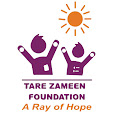India on Saturday (May 23, 2020) recorded the highest single-day spike in coronavirus cases with 6,654 new infections reported in the last 24 hours. The total tally inched to 1.25 lakh and the recovery rate stood at 41.39 percent. As per the Ministry of Health data the total number of coronavirus cases in India rise to 1,25,101 which includes 69,597 active cases, 51,783 recovered cases, 1 migrant patient, and 3,720 deaths.
India saw the biggest spike in COVID-19 cases for the second consecutive day on Sunday with 6,767 new infections reported in the last 24 hours taking the nationwide tally to 1,31,868, while the death toll due to the disease rose to 3,867 with 147 more fatalities, according to the Union Health Ministry.
Health Minister Harsh Vardhan, after visiting the dedicated COVID-19 health center (DCHC) at Chaudhary Brahm Prakash Ayurved Charak Sansthan (CBPACS) in Najafgarh, said the country has ramped up its testing capacity and around 1,50,000 tests can be conducted every day.
"Yesterday itself, we have conducted 1,10,397 tests. Till yesterday, we have conducted 29,44,874 tests," he said, adding that India now has 422 government laboratories and 177 private laboratory chains to conduct COVID-19 tests. In an online interaction with BJP spokesperson GVL Narasimha Rao, the health minister said India felt a "big jolt" with the sudden spike in cases following the Markaz incident in Delhi's Nizamuddin area. Vardhan said the incident was a lesson for all communities that when a collective decision is taken by the country, it must be followed with discipline. At the same time, he said there was no point talking about it now as strict contact tracing of Tablighi Jamaat congregation participants was done and those who contracted coronavirus have been treated.
Meanwhile, the health ministry also issued a separate guideline for domestic travel and international arrivals. In the guidelines for domestic travel, the ministry advised passengers to download the Aarogya Setu app on their mobile phones and asked states to ensure thermal screening at the departure point of airports, railway stations and bus terminals. Asymptomatic passengers should be permitted to travel after being asked to self-monitor for 14 days, it said.
Dos and Don'ts shall be provided along with tickets to travellers by agencies concerned, said the ministry's guidelines for domestic travel (air/train/inter-state bus travel).
The guidelines come after the Indian Railways last week issued a list of 100 pairs of trains that it will operate from June 1, putting in operation popular trains such as Durontos, Sampark Krantis, Jan Shatabdi and Poorva Express.
Also, after a two-month hiatus, Civil Aviation Minister Hardeep Singh Puri has announced the resumption of domestic flights from May 25. He also said that India will try to restart a good percentage of international passenger flights before August.
The Health Ministry also issued guidelines for international arrivals, saying that before boarding, all travelers shall give an undertaking that they would undergo mandatory quarantine for 14 days.
All scheduled commercial passenger flights have been suspended in India since March 25. While domestic flights will resume from Monday, international flights remain suspended.
Before boarding, all travelers shall give an undertaking that they would undergo mandatory quarantine for 14 days -- seven days' paid institutional quarantine at their own cost, followed by seven days isolation at home with self-monitoring of health, the guidelines said.
Only for exceptional and compelling reasons such as cases of human distress, pregnancy, death in the family, serious illness and parent(s) accompanied by children below 10 years, as assessed by the receiving states, home quarantine may be permitted for 14 days, it stated, adding the use of Aarogya Setu app shall be mandatory in such cases.
Vardhan, during his interaction with Rao, hailed the lockdown imposition as a bold decision which acted as a "potent social vaccine" against the virus and said it was taken at the right time.
Many developed countries of the world put a lot of thought into making this decision and decided to impose lockdown when the situation went out of control, he said.
In his remarks after visiting the COVID-dedicated facility, Vardhan said, "A total of 968 dedicated COVID hospitals have been identified across the country with 2,50,397 beds (1,62,237 Isolation beds plus 20,468 ICU beds); 2,065 Dedicated COVID Health Centres with 1,76,946 beds (1,20,596 isolation beds plus 10,691 ICU beds); and, 7,063 COVID Care Centres with 6,46,438 beds."
About the status of containment of COVID-19 in the country, Vardhan said, "Prior to lockdown, on March 25, the doubling rate was 3.2 when measured over a period of three days, three when measured over a period of seven days and 4.1 when measured over a period of 14 days."







0 Comments